Between January and May 2025, something powerful unfolded at NoCode Institute. We launched the third edition of Descodifica-te - a program designed not just to teach digital tools, but to open doors, rebuild confidence, and redefine what's possible.
This wasn’t a bootcamp for coders. It was a lifeline for women in career transition, mothers, and caregivers—people who’ve spent years holding everything together for everyone else, and finally decided it was time to invest in themselves.
Over five months, +80 women learned to build real digital solutions—no code required. They gained technical skills, mastered platforms, built portfolios, and most importantly, they built belief in themselves.
The mission?
This program isn’t just about individual transformation. It’s about building a more inclusive, future-ready workforce. Backed by strategic partners committed to social impact, Descodifica-te proves that when companies and institutions invest in real capacity building, the ROI isn’t just social—it’s economic, cultural, and long-term.
Descodifica-te #3 was funded through the generous support of Fundação AGEAS and Fundação MEO, and their commitment helped turn potential into progress.
Descodifica-te #3 wasn’t your average classroom. It was a digital melting pot of ambition, grit, and reinvention. From a pool of 275 applicants, 150 were selected, spanning generations, professions, geographies, and life chapters.

The age range? From 19 to 63. That’s five decades of perspective, proof that digital empowerment isn’t reserved for the young: it’s for the ready.
From Torres Vedras to Maputo, Sintra to São Paulo, while the majority hailed from Portugal (123 students), the cohort also included voices from Brazil, Angola, Mexico, Mozambique, Colombia, Spain, and Germany, bringing global flair to every Zoom room.
Professional backgrounds were as diverse as their passports: from female biotech engineers and holistic healers to ballet students, salsa dancers, and data analysts. Many came from fields where tech wasn’t the norm, but curiosity was.
Their goals told a story of reinvention: 44 aimed to launch their own businesses, 38 wanted to thrive as freelancers, and 29 sought to break into tech companies. Whether unemployed (66), full-time workers (63), or already independent (19), they were united by one thing: refusing to settle.
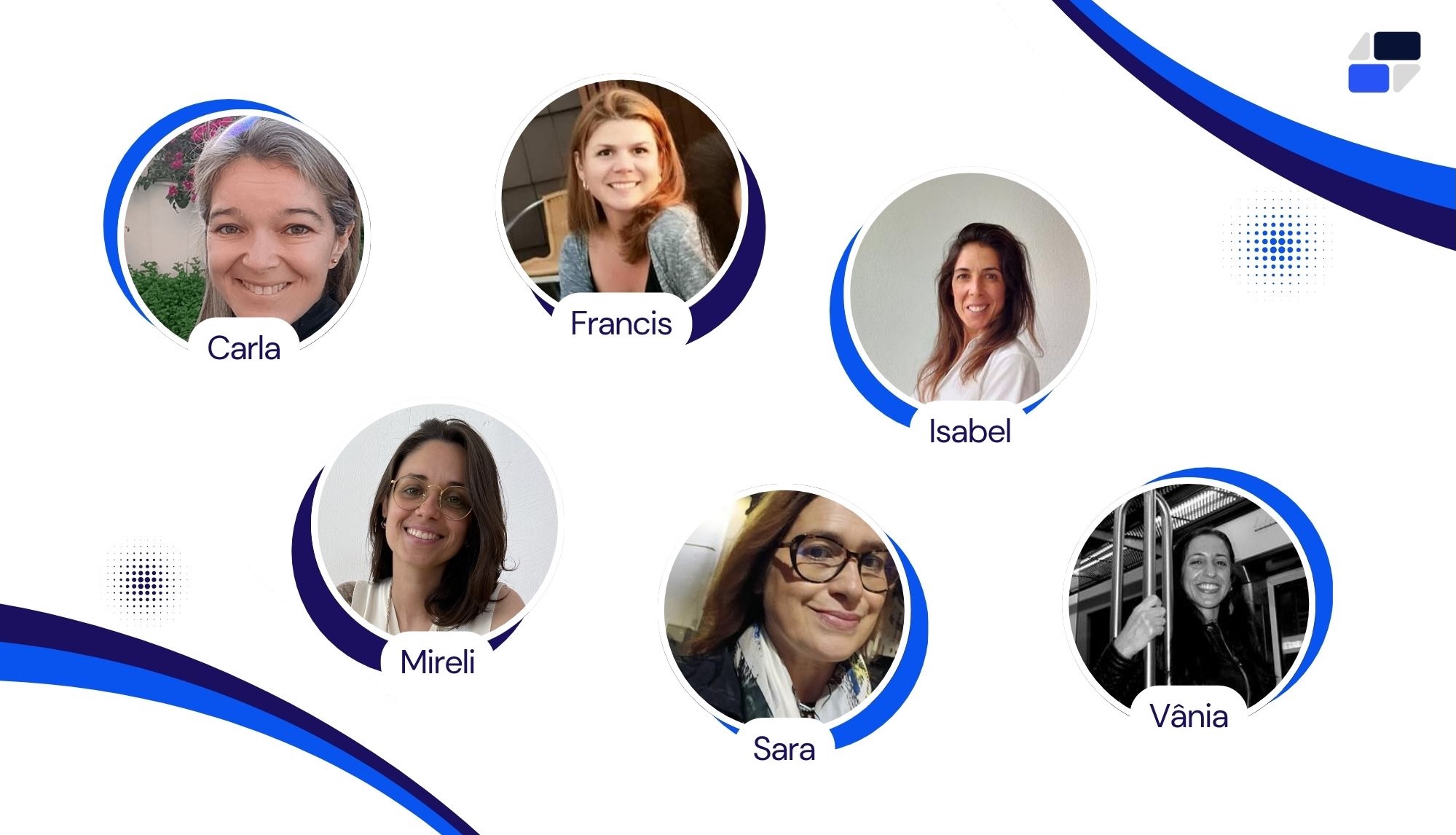
Carla juggles telecom corporate roles while raising an autistic daughter. She’s learning no-code tools to create work that matters—without losing herself.
Francis, born in Venezuela with roots in Madeira, moved to Portugal seven years ago for a master’s and stayed. Her mission? To build digital tools that combat workplace harassment and promote psychological well-being.
Isabel, a marketing freelancer turned yoga instructor, embraced AI tools, SEO, and cracked into this class to sharpen her digital edge.
Mireli spent 15 years in food and beverage, teaching culinary arts and living the kitchen life. She’s deep into a career pivot toward digital marketing, working as an SEO analyst. Hungry for growth (pun intended), she joined Descodifica-te to sharpen her digital edge and expand her network.
Sara, from Montemor-o-Novo, balances work at an IPSS with a Sociology master's at Évora. Calling technology a challenge, she applied for Descodifica-te and got excited the moment she was accepted.
Vânia, creative author and illustrator, breathes design, runs her own EVAGABRIEL Studio, and is here to build a website that reflects her creative soul.
… and that’s just a snapshot. They weren’t just students. They were humans with quirks, dreams, and histories—and that messy, real, vibrant humanity became the beating heart of Descodifica-te #3.
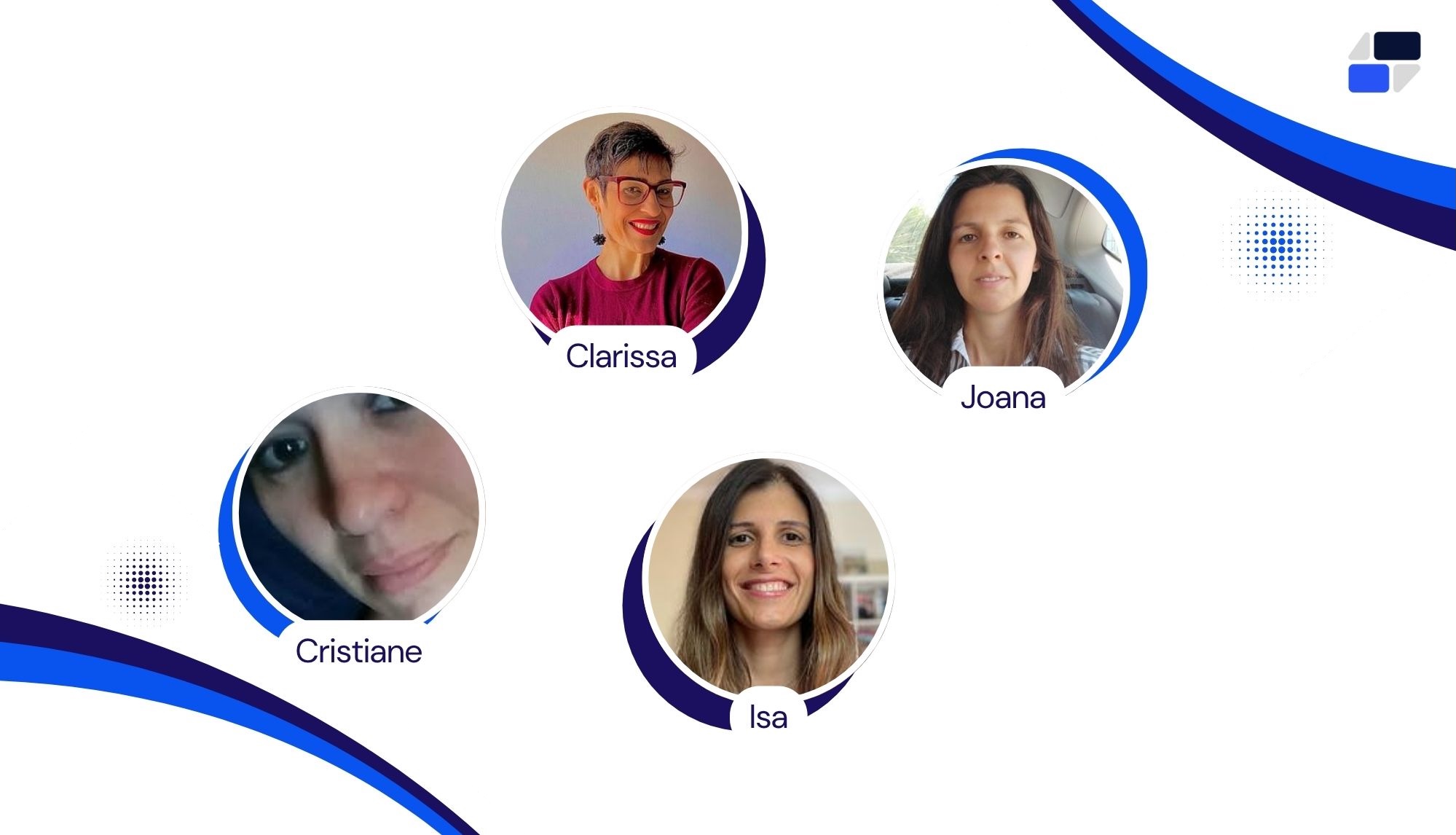
In every cohort, a few students become the heartbeat of the community.
Clarissa, the cat-whisperer from Seixal, was the quiet backbone. A journalist-turned-integrative therapist, was the kind of student every community needs. She didn’t just submit her work early—she stuck around to help others, sharing blueprints, frameworks, and encouragement like community currency.
Joana, who once said, “I’ve got more ideas than time,” created visual analogies that made no-code feel like storytelling. Her metaphor comparing no-code to a nurse and code to a doctor? Genius. She spent so much time helping others, she sometimes missed her own deadlines. But no one minded—she lifted the entire room.
To me, I think of a No-Coder as a nurse, and a Coder as a doctor. The nurse can apply most treatments (in this case, digital solutions), but when something more complex is needed, it’s the doctor (the surgeon) who steps in—just like a programmer dives into the code to create something more customized.
Cristiane, recovering from burnout in rural Alentejo, brought humor and heart. Her Zoom Open Room became a sanctuary for struggling students. Between therapy and chats with her laptop (yes, literally), she held the room together.
And let’s not forget Isa, a proud mom of two, a medical doctor with 16 years of experience, and the cohort’s unofficial QA manager. She read everything, gave precise, constructive feedback, and helped others avoid mistakes. Isa pushed everyone to not just deliver, but deliver right.
This wasn’t a cohort. It was a co-op. Everyone brought something: turning deadlines into lifelines, tasks into team efforts, and a digital course into a living, breathing community.
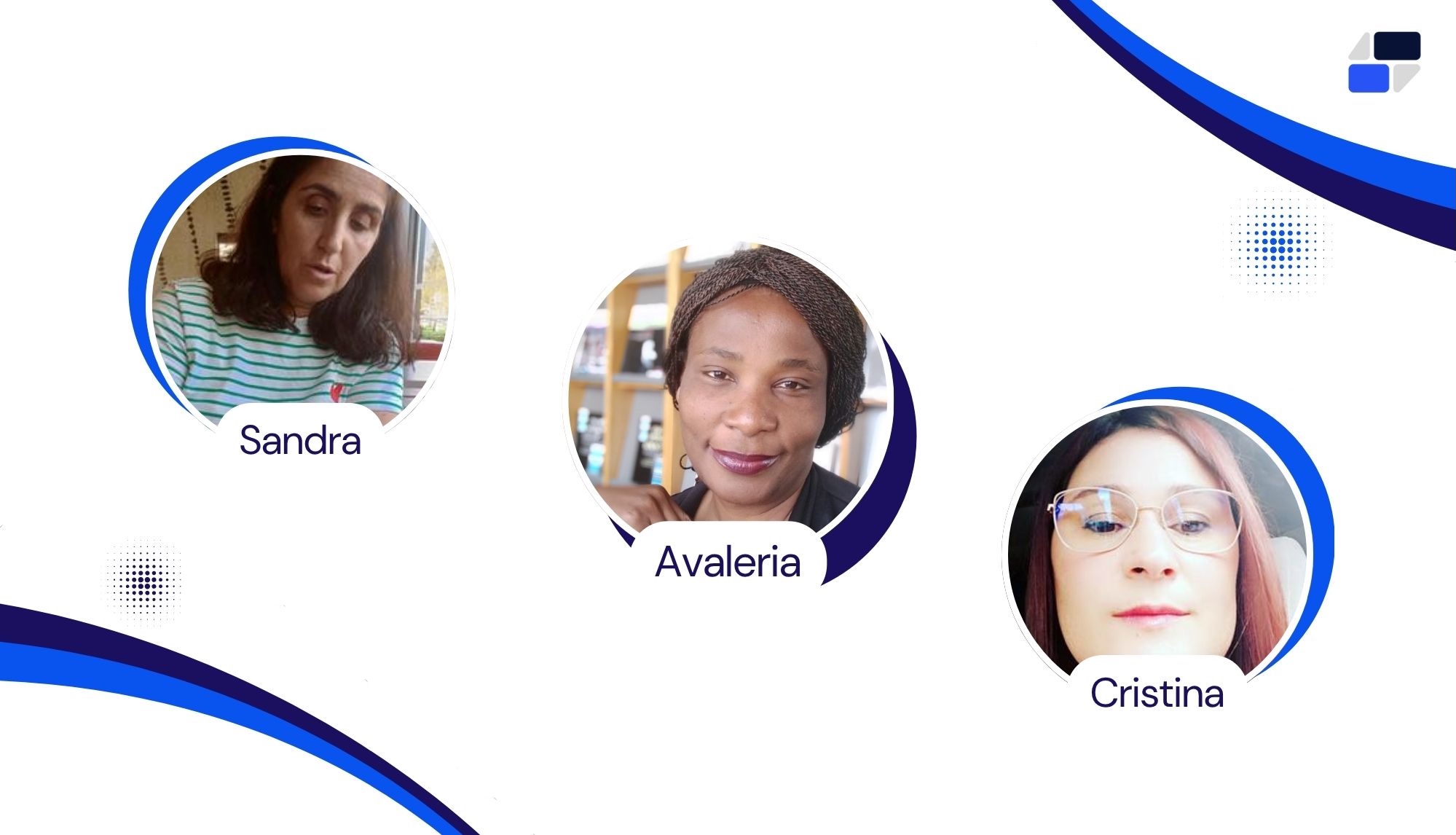
Not all heroes build with code—some build with pure determination.
Sandra came into the program with the odds stacked against her. Nearly 50, unemployed for years, and far behind in digital skills, she hesitated before enrolling. She even asked once if she was "too far behind to learn tech." Today? She’s thinking about freelancing. That’s not just progress—that’s a comeback story.
Avaleria’s journey was quiet but extraordinary. A black woman raising five children, she showed up, week after week. Her projects were simple, but they were hers—and they worked. She completed the program, delivered her final project, and left her partner satisfied. Behind the screen was a fighter who never quit, no matter how heavy life was outside the course.
Then there’s Cristina, who built her Capstone project in Adalo while managing a heart condition that sometimes quite literally stops her heart. She works at a local municipality, in an administrative role, but you’d never guess the challenges she faces daily. She reached out quietly, not to complain but to say, “I’ll get it done by Sunday.” Every week. No drama. Just grit.
These stories weren’t exceptions—they were the soul of Descodifica-te #3. Resilience wasn’t optional. It was the norm.
Descodifica-te #3 wasn’t about ticking boxes or handing out certificates. It was about showing what happens when you give women the tools—and trust—to transform.

With a completion rate of 70% and 80% of students delivering Capstone projects, this cohort proved that consistency beats perfection every time. Over five months, they launched +730 projects—from wireframes and workflows to full-blown apps. Even more impressive? 70% completed real client work, translating learning into live, measurable impact.
But the real magic was in the personal victories.
Paula, a former tourism professional and TV producer, who came in with zero experience, surprised even herself:
What shocked me was that I actually managed to build a website. Even if it was simple, it worked. And me? I made it work!
Stephanie, originally from Brazil and working in Portugal in a call center, had no prior experience with building apps. Her fight with Glide’s chat function became a class legend:
I told myself, I won’t let this stress me out… So I’d take a break, breathe, sip some Port wine… then come back and try again. And in the end, I finished!
Behind the laughs was someone who refused to let frustration win. She turned every glitch into a reason to persist.
But perhaps nothing hit harder than Diana’s quiet revelation, shared during a vulnerable moment with her peers:
After 18 and a half years in the same company, I handed in my resignation last week. I’m starting something new.
Diana, in her 40s, had worked in a logistics company for nearly two decades. Through this program, she didn’t just gain skills—she reclaimed agency over her life.
They weren’t just learning to build. They were learning to believe.
The trainers felt it too. Students formed private groups, shared wins and failures, recorded late-night tutorials, and checked in on each other like sisters. This was more than a classroom. It was a movement of women showing up—not just for themselves, but for each other.
In the final stretch of the program, theory met reality. Many students rolled up their sleeves and tackled real client projects—supporting NGOs, small businesses, and entrepreneurs in building their online presence. These weren’t exercises. They were live products with deadlines, client feedback, and real-world pressure.
Each project was an opportunity to go beyond tech: to practice client management, prioritization, negotiation, and most importantly, communication. Students learned to navigate expectations, troubleshoot under stress, and turn vague ideas into working digital solutions.
To prepare them for this leap, we hosted a Speed Mentoring session—a high-energy experience powered by guest mentors. It was designed not only to sharpen their final pitches, but also to simulate the dynamics of professional networking, collaboration, and digital consultancy.
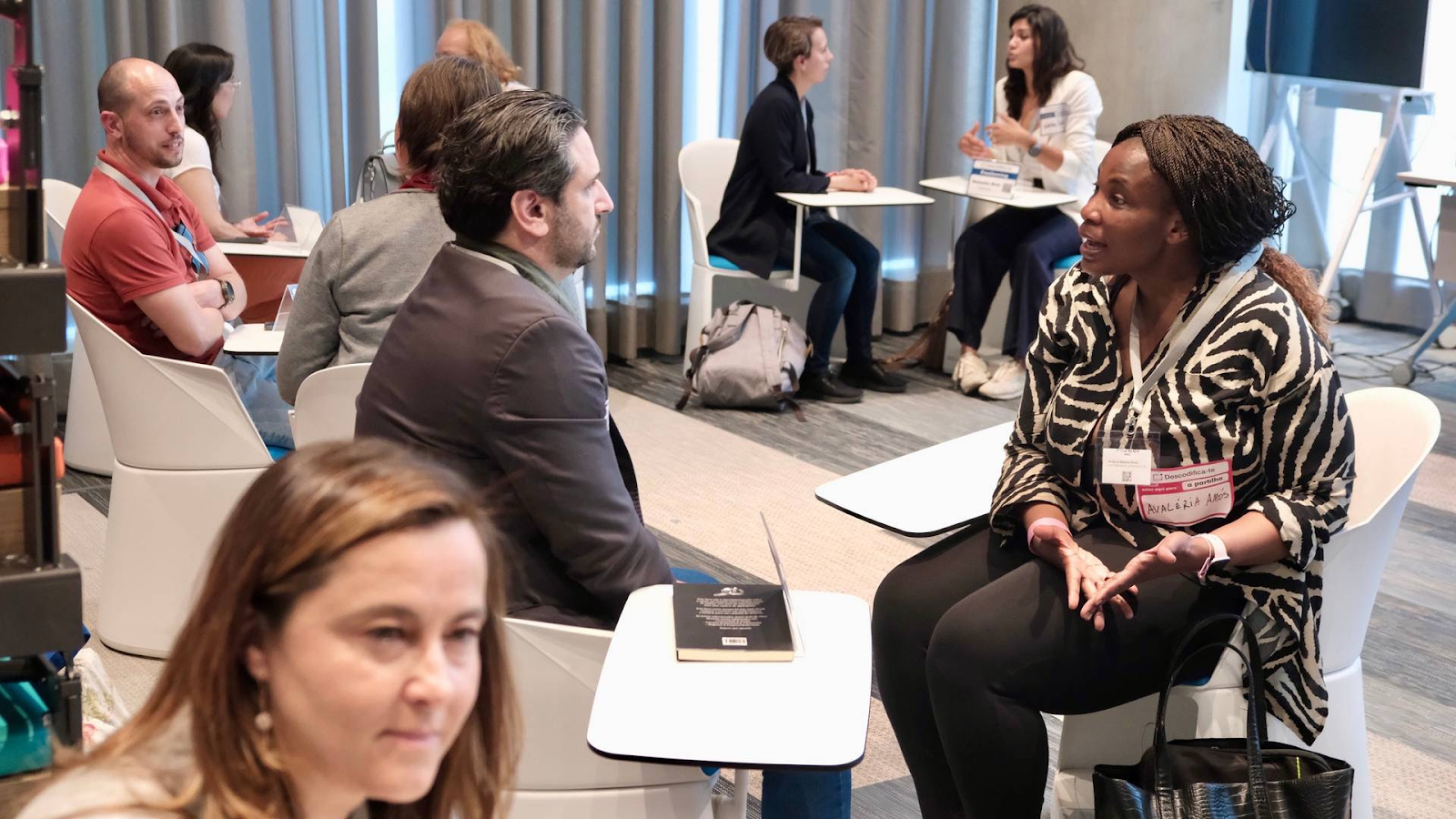
“I got the chance to refine how I present myself as a digital transformation consultant,” said Stephanie. “The feedback I received helped me clarify my message, fix key blind spots, and most of all—gave me the tools to sell my value with confidence.”
What they built mattered. But how they showed up—as professionals ready to deliver—was the real breakthrough.
Cristina, an admin worker at a parish council in Queirã, turned her Capstone into a real-world app for her local Junta de Freguesia. She taught herself Adalo—beyond the course—to build a tool with logins, document requests, event updates, geolocation reports, and more. Her project proves Descodifica-te students don’t just meet expectations—they exceed them.
Visit the Project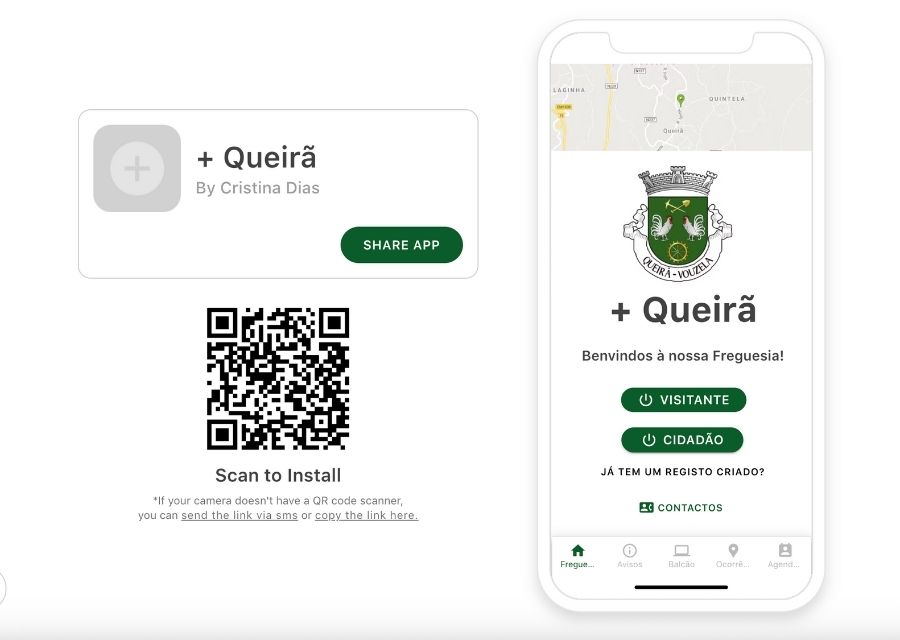
Ana and Sílvia teamed up to build a deceptively simple e-commerce quiz for a pharmacy that, behind the scenes, was one of the most technically demanding projects in the cohort. Using Tally, Airtable, and complex logic formulas, they created a dynamic recommendation system—an elegant frontend in Softr masking a deeply intricate backend solution, built entirely from scratch.
visit the project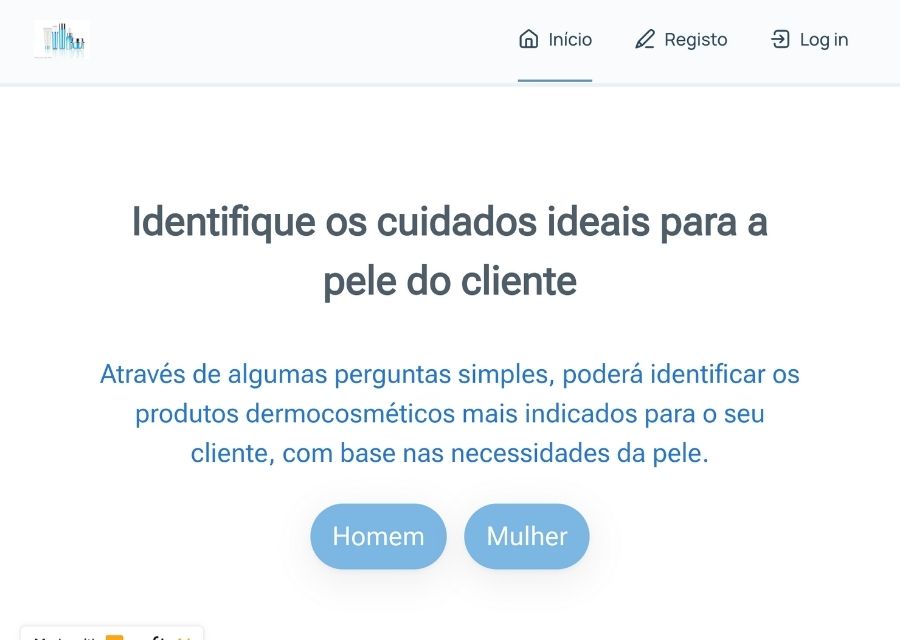
Dora, a social worker turned team leader, took on one of the toughest challenges: building a chatbot with no prior experience. Using Botpress and WhatsApp, she created Vita—a smart assistant for Vitamimos that shares rental terms, collects user data, and automates bookings. With just one mentor session, she delivered a logic-rich, scalable, client-ready solution.
visit the project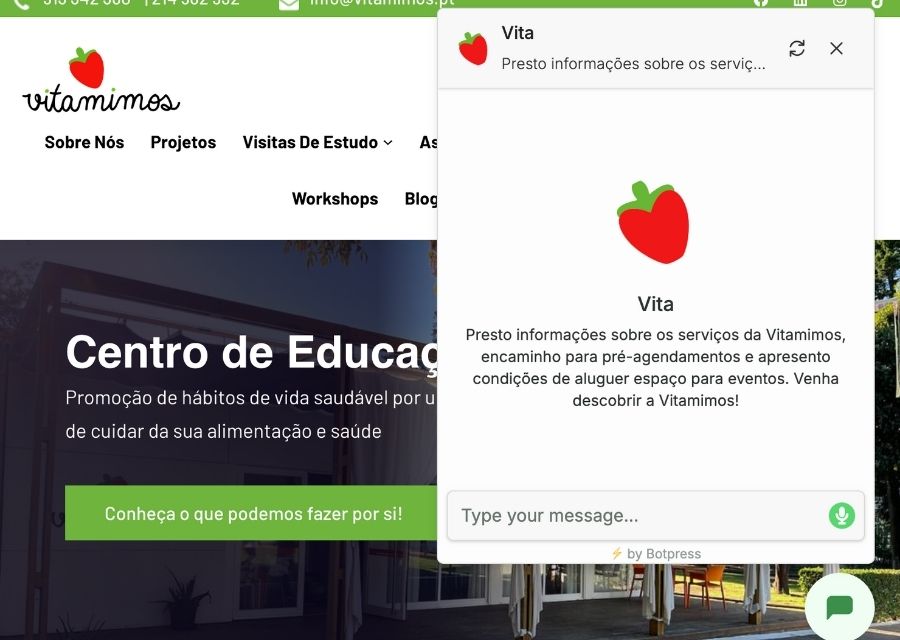
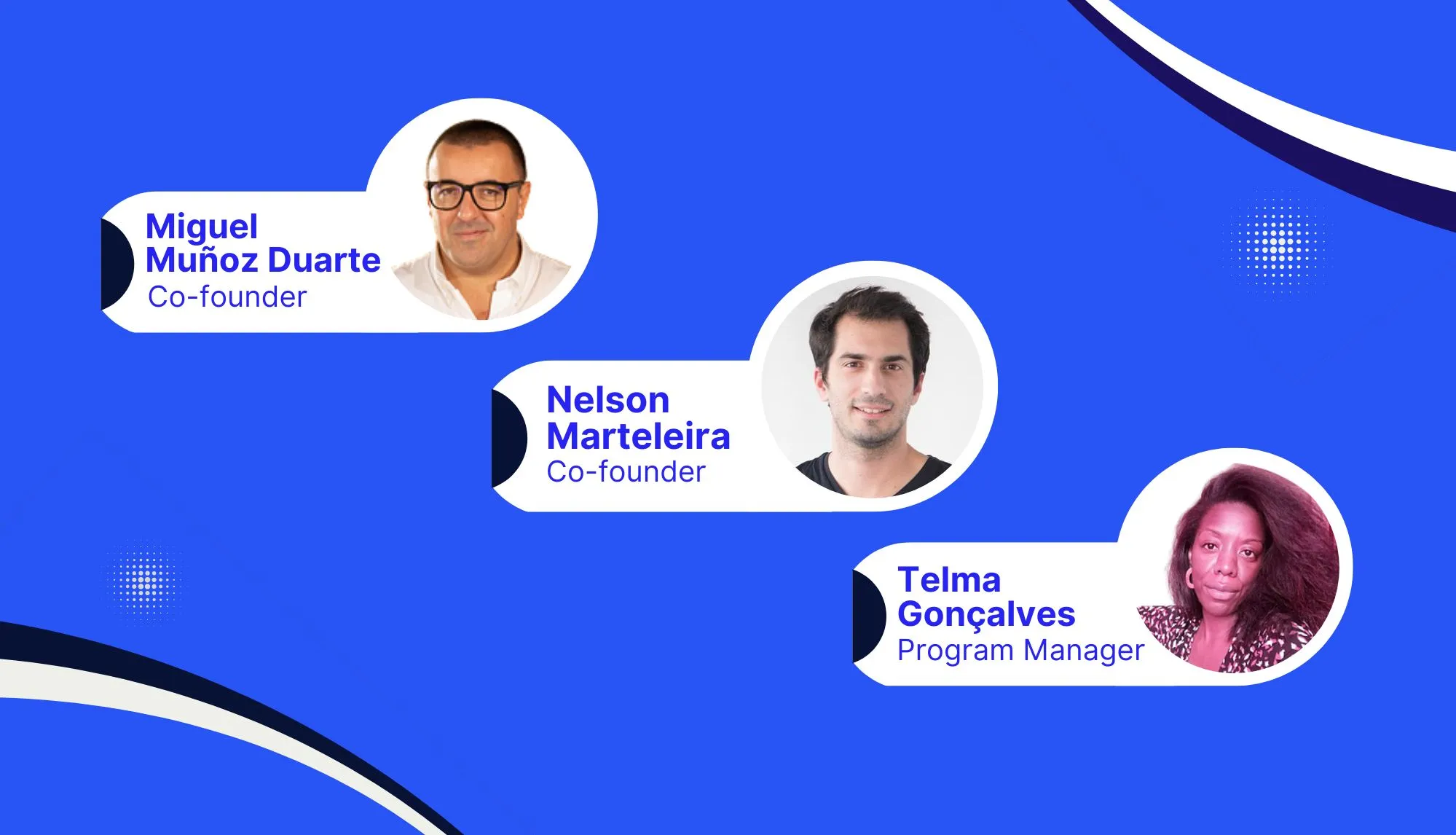
This cohort was more than just technically talented—it was the most diverse, proactive, and collaborative group NoCode Institute has seen to date.
Miguel observed a wide spectrum of digital literacy, from absolute beginners to seasoned professionals. From blue-collar workers to web designers, the classroom was a true reflection of society:
Different worlds, same drive.
Telma noted that the level of mutual support was unmatched. Students answered each other’s questions before instructors could, sometimes late at night, sometimes with full tutorial videos.
They weren’t just learning—they were building a culture. A network. A movement.
Nelson saw more experimentation than ever—students ventured into Wix, Adalo, Ycode, Pixieset, Hostinger, Botpress, and more. Tools that weren’t taught formally, but were embraced nonetheless. That’s ownership. That’s initiative.
And the biggest insight?
This cohort confirmed what we already believe: that transformation is possible, that women absolutely belong in tech, and that diversity isn’t just nice—it’s powerful.
— Miguel Muñoz Duarte

Thanks to the support of Fundação AGEAS and Fundação MEO, +80 women gained access to tools, mentorship, and opportunities that would’ve remained out of reach. This wasn’t just about learning—it was about launching careers, building products, and making bold, life-changing decisions.
The women of Descodifica-te #3 didn’t just learn Glide or Airtable. They learned how to bet on themselves. How to start before they were ready. How to finish, even when it was hard. How to lead—and lift others while doing it.
Because transformation doesn’t wait for perfection. It starts the moment you say: “I’m ready to try.”
Partner with us for our next cohorts. Let’s build the future together.
Contact us